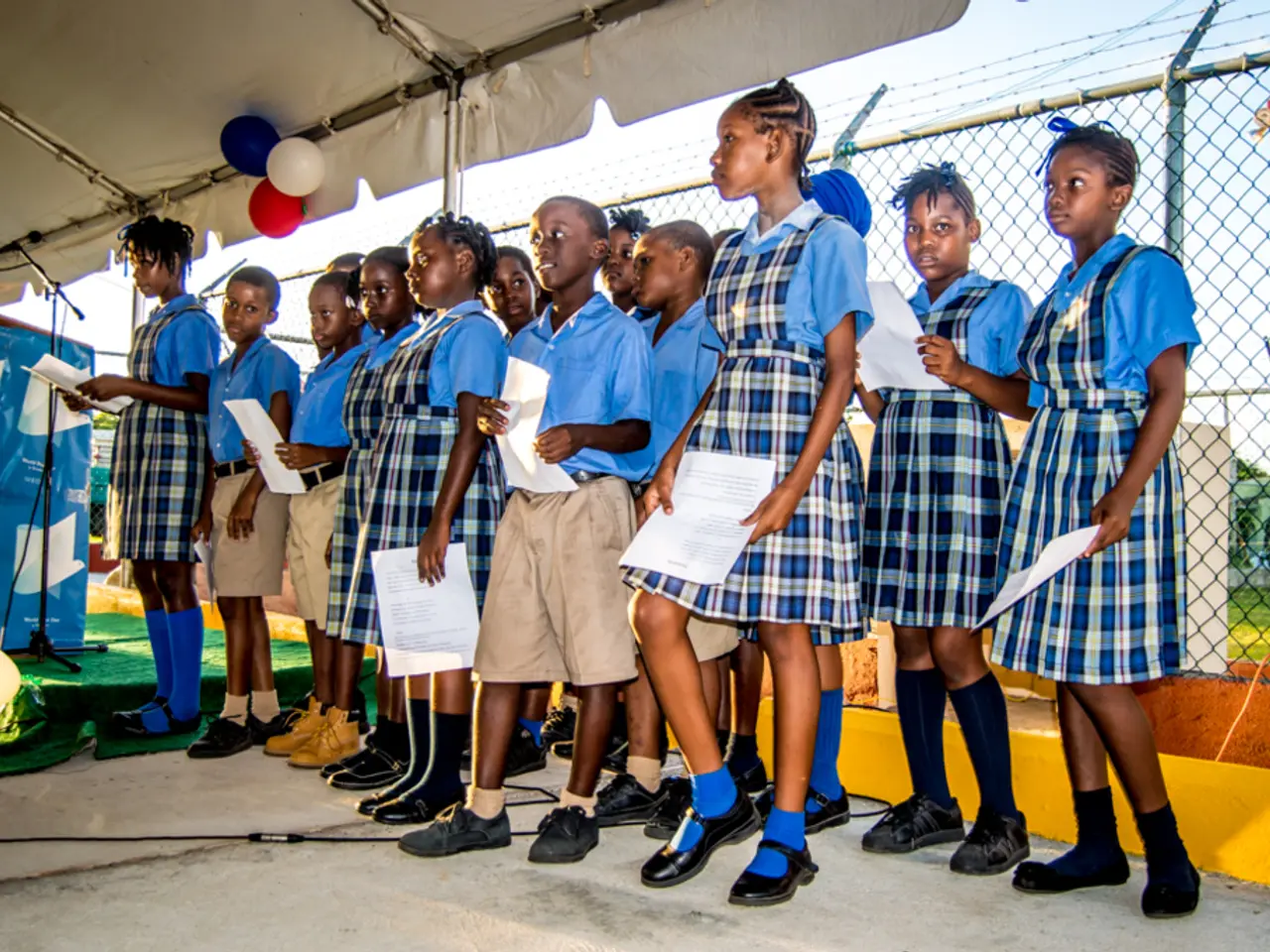Should schools examine their homework policies to ensure equal treatment for all students? Protests from students are calling for a change in school homework practices. - Advocates Among Students Press for Equality for All
In the heart of Baden-Württemberg, a heated political debate is unfolding regarding the use of phones and social media in schools. The Education and Science Union (GEW), based in the region, is one of the key players in this discussion.
Joshua Meisel, chairman of the state student council, is advocating for equal phone rules for students and teachers during school hours. He suggests that setting a good example can help curb the misuse of iPhones in class. However, he is not in favour of a complete ban, arguing that imposing rules without adhering to them won't gain much acceptance.
On the other hand, Green politician Cem Özdemir has proposed a ban on social media for children and youth under 16 years old. CDU state and faction leader Manuel Hagel, meanwhile, has proposed a general iPhone ban during class, a stricter approach than currently planned by the Ministry of Education.
Monika Stein, the state chairwoman of GEW, finds the idea of a blanket ban unrealistic. She suggests that existing rules for iPhone and social media use in schools should be further developed, rather than implementing blanket bans. Stein cites the 2009 Winnenden school shooting as an example, suggesting that quick contact between teachers and police was crucial and could have prevented worse outcomes.
The state student council, led by Meisel, argues that teachers should not be allowed to use their iPhones privately during work hours. This point is also echoed in the debate about fair treatment, as some argue that teachers should be held to the same standards as students when it comes to iPhone use during school hours.
The Green-Social Democrat state government in Baden-Württemberg has initiated a change to the school law, allowing schools to set their own rules for the use of private iPhones. The GEW, however, recommends waiting for the implementation in the approximately 4,500 schools before assessing the effects and necessary improvements.
Stuttgart, the capital city of Baden-Württemberg, is where this debate is particularly intense. The state of Baden-Württemberg is home to the Education and Science Union and many schools, making it a key battleground in this ongoing discussion.
Meisel also states that an iPhone ban might not help if a teacher cannot engage students with their teaching. This raises questions about the effectiveness of such a ban and the need for a more comprehensive approach to addressing the issue of iPhone and social media use in schools.
As of now, there is no specific information available on which parties in Baden-Württemberg have proposed a stricter approach to regulating private iPhone use in schools compared to the current plans of the Ministry of Education. The debate continues, with many voices advocating for various solutions to ensure a safe and productive learning environment for all students.
Read also:
- United States tariffs pose a threat to India, necessitating the recruitment of adept negotiators or strategists, similar to those who had influenced Trump's decisions.
- Weekly happenings in the German Federal Parliament (Bundestag)
- Southwest region's most popular posts, accompanied by an inquiry:
- Discussion between Putin and Trump in Alaska could potentially overshadow Ukraine's concerns








